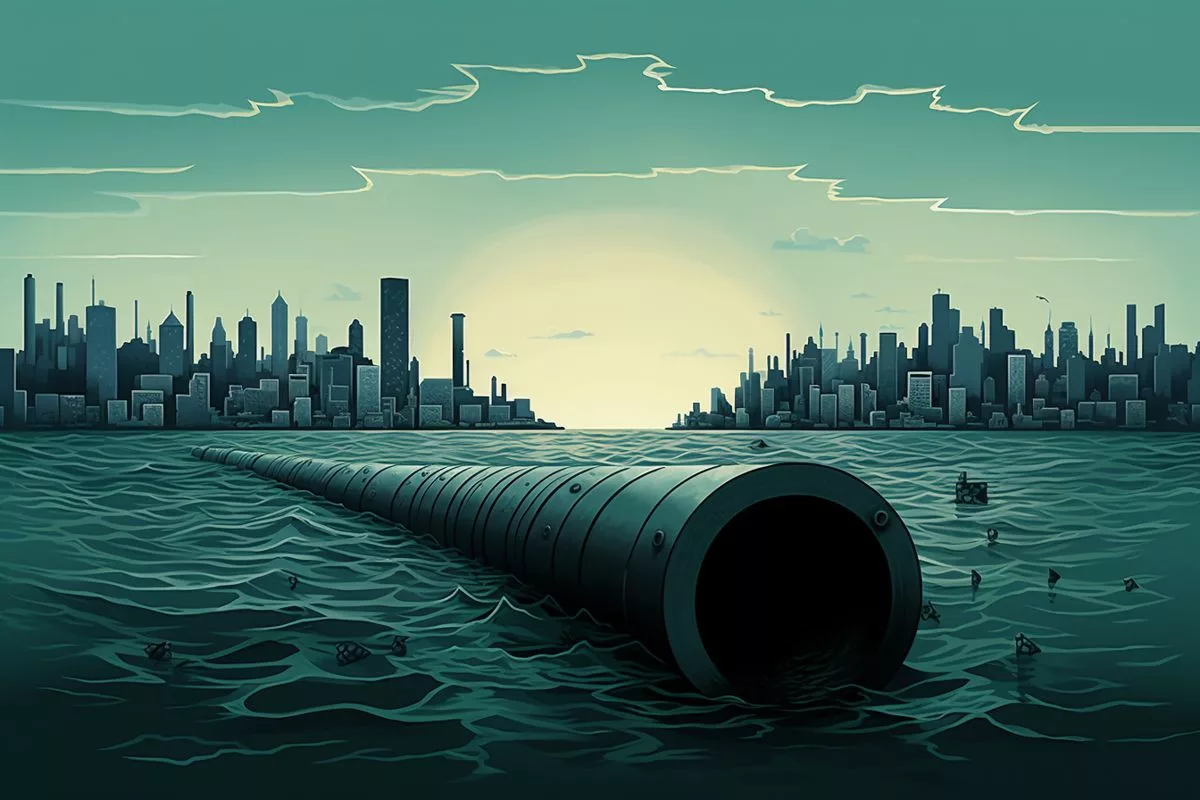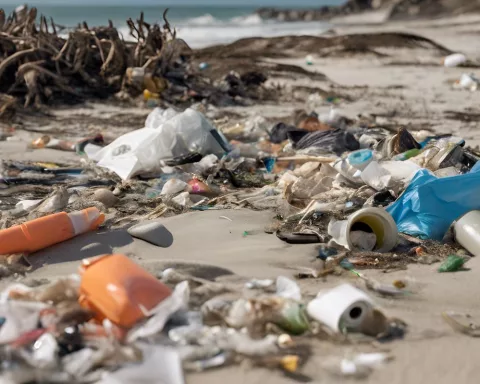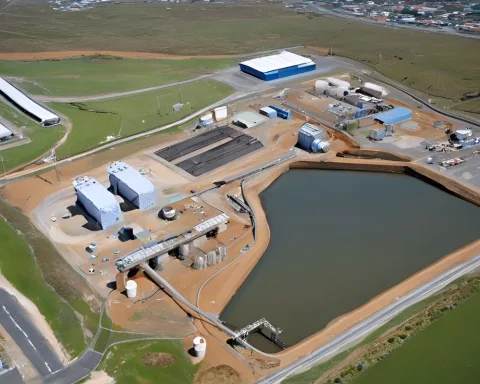Cape Town’s stunning coastline is facing an environmental crisis due to the city’s breach of oceanic sewage discharge regulations into the Hout Bay. The city released over one billion litres of sewage that contained high levels of harmful substances, leading to a surging ecological crisis. However, the city has launched a study to evaluate the practicality and cost of treating sewage before releasing it into the sea, highlighting a renewed dedication to environmental protection. The crisis underscores the delicate balance between pursuing infrastructural efficiency and honouring environmental sustainability commitments.
Cape Town’s sewage crisis: A detailed discussion on the ocean sewage dilemma
Cape Town has breached oceanic sewage discharge regulations into the Hout Bay, leading to a surging ecological crisis. The city overstepped its sewage release limit on 104 out of 181 days, releasing over one billion litres of sewage that contained high levels of harmful substances. The city has launched a study to evaluate the practicality and cost of treating sewage before releasing it into the sea.
An Ecological Paradox on Cape Town’s Coastal line
Nestled at the southernmost point of the African continent, Cape Town harbours a breathtaking coastline that presents a striking dichotomy of natural splendor and mounting environmental concern. Central to this predicament is the city’s breach of oceanic sewage discharge regulations into the Hout Bay, an idyllic area caught in the throes of a surging ecological crisis.
ActionSA, a South African political entity, has voiced its apprehensions concerning Cape Town’s apparent disregard for the ecological well-being of the area. The city, under the jurisdiction of the Department of Forestry, Fisheries, and the Environment, stands accused of transgressing its oceanic sewage discharge permit. It appears that the city’s urgent infrastructural needs have outshone the importance of the permit, leading to the regrettable mismanagement of the Hout Bay’s sewer systems.
Michelle Wasserman, ActionSA’s provincial chairperson, used the Promotion of Access to Information Act (PAIA) application to uncover the depth of the city’s misdemeanours. During a six-month stretch in 2023, Cape Town was discovered to have overstepped its sewage release limit on 104 out of 181 days. On multiple occasions, the city released more than double the accepted five million litres of sewage daily, with one day recording an alarming 12.5 million litres.
Unveiling the Impact and Revealing the Negligence
In total, Cape Town’s excessive sewage discharge into Hout Bay amounted to over one billion litres, significantly surpassing the top allowance of 905 million litres. The gravity of this matter is accentuated by the inferior quality of the sewage, containing high levels of harmful substances such as arsenic, cadmium, calcium, copper, chromium, cyanide, and mercury.
Wasserman’s PAIA inquiry also disclosed the city’s indifference towards the founding of the Permit Advisory Forum. This platform, obligated by the 2019 permit, was a fundamental measure in the city’s enforcement and surveillance of compliance with its oceanic sewage discharge permit.
In an unexpected turn, Zahid Badroodien, the City Water and Sanitation Mayco representative, remains confident about Cape Town’s compliance with its permits. He adamantly believes that the city is functioning within the stipulations and conditions set by the Department of Water and Sanitation/DFFE.
A Path Towards Sustainable Solutions and Environmental Preservation
In reaction to rising public anxiety, the city has launched a study to evaluate the practicality and cost of treating sewage before releasing it into the sea. A preliminary scoping report is currently under examination, with strategies for further community engagement upon its conclusion.
The unfolding crisis in Cape Town offers a stark representation of the intricate connection between urban growth and environmental protection. It underscores the delicate balance between pursuing infrastructural efficiency and honouring environmental sustainability commitments. As Cape Town grapples with this formidable issue, a revitalized dedication to openness, regulation, and innovation will undoubtedly shape the city’s environmental trajectory.
As we delve further into the intricacies of Cape Town’s sewage quandary, new layers of complexity surface, weaving a distinctive tale of environmental strain and resilience. At its heart, this problem serves as a call to action, encouraging us to contemplate our roles as environmental stewards and the decisions we make in our pursuit of urban progression and modernity.
What is the Cape Town Coastal Crisis?
Cape Town is facing an environmental crisis due to the city’s breach of oceanic sewage discharge regulations into the Hout Bay. The city released over one billion litres of sewage that contained high levels of harmful substances, leading to a surging ecological crisis.
What are the consequences of Cape Town’s sewage discharge?
Cape Town’s excessive sewage discharge into Hout Bay amounted to over one billion litres, significantly surpassing the top allowance of 905 million litres. The sewage contained high levels of harmful substances such as arsenic, cadmium, calcium, copper, chromium, cyanide, and mercury.
Has Cape Town taken any action to address the sewage crisis?
Yes, the city has launched a study to evaluate the practicality and cost of treating sewage before releasing it into the sea. A preliminary scoping report is currently under examination, with strategies for further community engagement upon its conclusion.
What is the Permit Advisory Forum, and why is it important?
The Permit Advisory Forum is a platform obligated by the 2019 permit, which was a fundamental measure in the city’s enforcement and surveillance of compliance with its oceanic sewage discharge permit. The city showed indifference towards the founding of the forum.
What is the connection between urban growth and environmental protection?
The unfolding crisis in Cape Town offers a stark representation of the intricate connection between urban growth and environmental protection. It underscores the delicate balance between pursuing infrastructural efficiency and honouring environmental sustainability commitments.
What can we learn from Cape Town’s sewage crisis?
This problem serves as a call to action, encouraging us to contemplate our roles as environmental stewards and the decisions we make in our pursuit of urban progression and modernity. A revitalized dedication to openness, regulation, and innovation will undoubtedly shape the city’s environmental trajectory.












